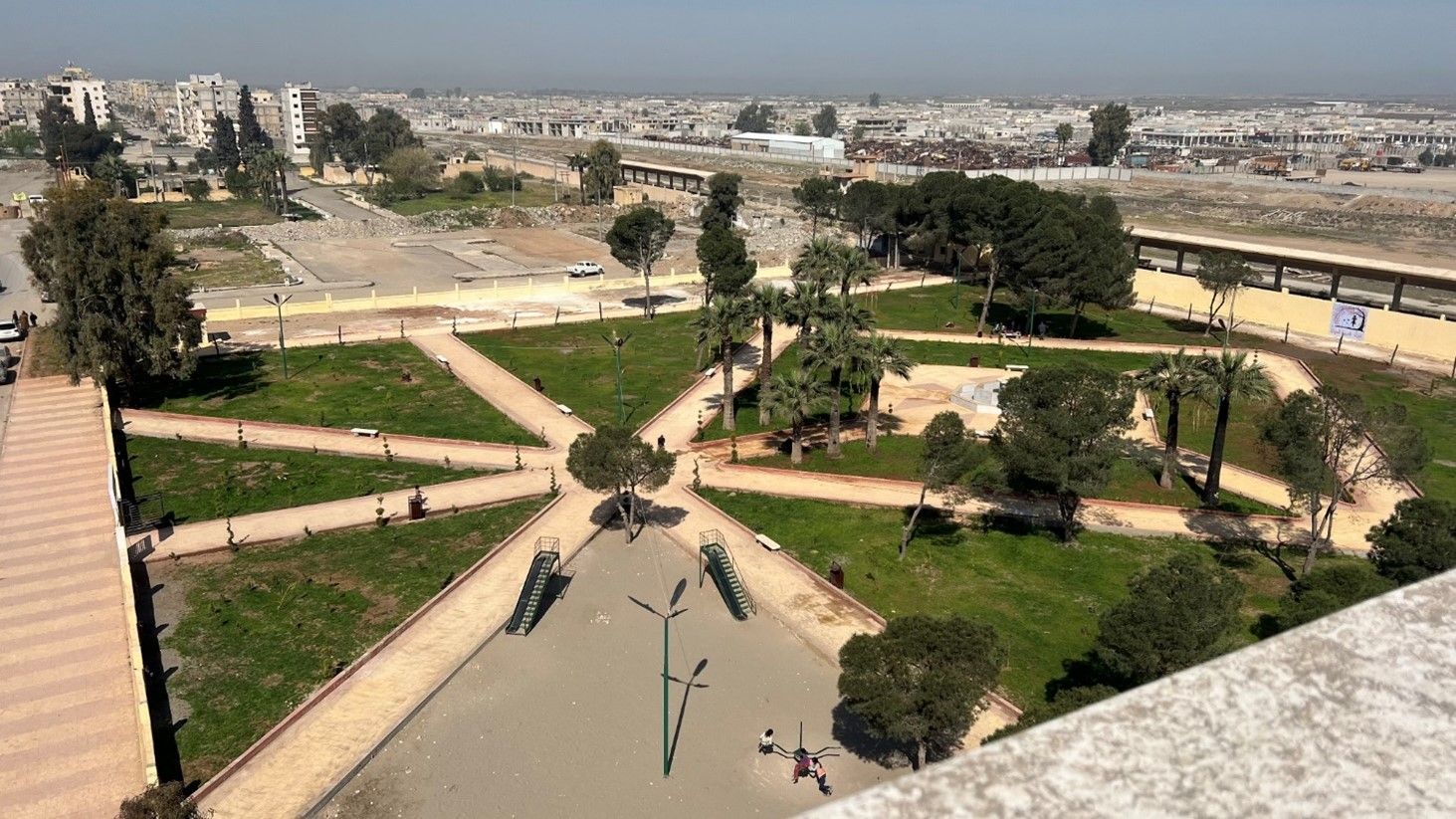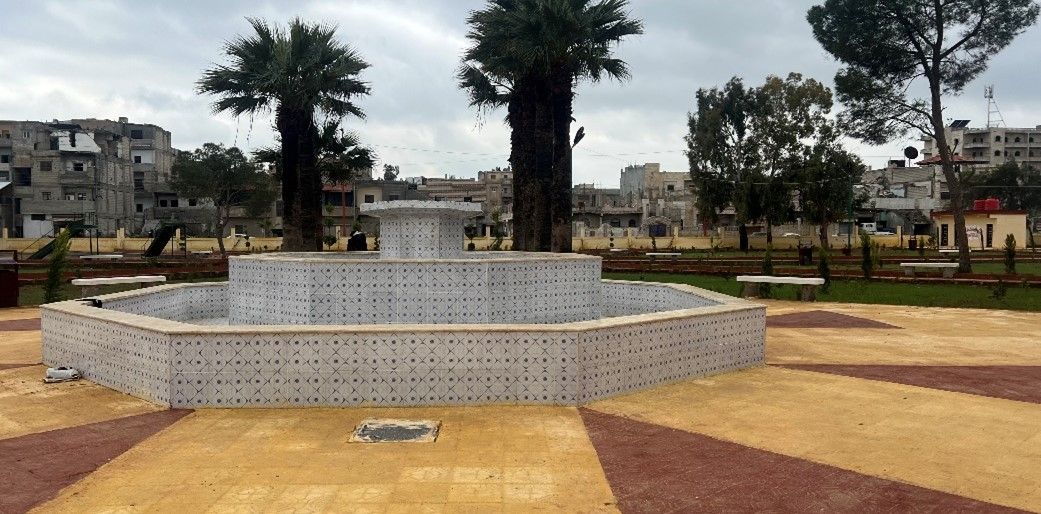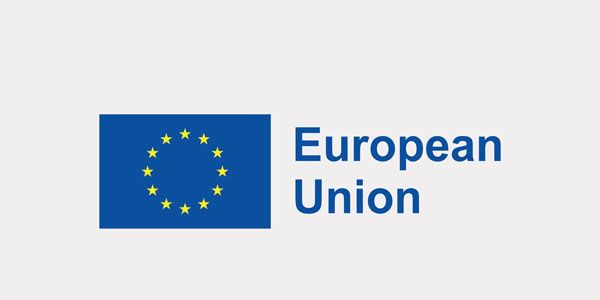The Issue
Children are often amongst the victims of war remnants in Ar-Raqqa City, in North-East Syria (NES). Not only through direct consequences of explosive accidents, but also because of reduced access to public spaces where explosive hazards remain after more than 12 years of conflict in the country.
Community parks provide a safe place for social gatherings, community celebrations and recreational activities for women and children in particular. This garden had been avoided by the community because of the presence of Explosive Remnants of War (ERW), but now that it has been cleared and rehabilitated, it will once again provide somewhere safe and secure for the community to enjoy it. Al Thawrah public park in Ar-Raqqa is one of these community spaces which has been abandoned since the liberation of the city from ISIS in 2017 due to the fear of the ERW in it, and it is the only outlet and green part in this neighbourhood.

The Project
With the support of the European Union, DCA responded to the request from the local authorities (municipality) in Ar-Raqqa City. The DCA mixed gender Humanitarian Mine Action (HMA) team worked to safely remove the ERW from the community garden in downtown Al-Raqqa city. During three weeks of systematic search and clearance procedures, 11 x ERWs were safely removed, including 2 improvised explosive devices (IEDs). After the clearance, the garden was handed over to our Shelter team, who coordinated with the local authorities to agree on design and community needs prior to rehabilitating the garden.
Among the work carried out, the repair and reinstatement of the central fountain, replanting of trees, bushes, plants, and seeding of lawned areas, provision of social seating areas, colourful and vibrant wall-artwork, play-swings, slides and safe spaces for children, and a gender-sensitive WASH facility accessible to people living with disabilities (PwD).

The Change
The importance of the project comes from the fact that parks and recreational spaces are very rare in NES, and by rehabilitating this piece of infrastructure communities now have a safe place for gatherings, specifically, for children to play freely and practice their hobbies, which helps with their physical and mental health.
In this project, DCA managed the whole process – from clearing the area, removing the ERWs to rehabilitating the park.
On the opening day of the park, DCA handed over the community garden to the municipality. They have designated it a women’s park, so the opening celebrations took place on International Women’s Day on March 8, 2024.
During this celebration, DCA met with the joint presidency of the municipality and Head of the Parks Committee to get their opinions and feedback on the project, which provided interesting information about this park, the city, and the conflict. As the Head of the Municipality said: “I remember well one of ISIS’s sayings, ‘Your land will continue to fight you for twenty years,’ it seems they were right, they planted something that fights the innocent people even after they left, many people lost their lives, and those who were lucky enough to survive lost one of their limbs and were sentenced to live with a permanent disability”.
We also spoke with a mother watching her child play at the new playground. When asked how she finds the new park, she remarked that watching children play freely in the park is a remarkable sight in Ar-Raqqa. ‘The sight of children playing is the biggest proof and answer to the question. Even before the work was completed, and in the evening hours, we saw families and children visiting the park, the joy of the residents and the children reflects the success of the project and its impact’. She continues to say, that ‘(…) by working on rehabilitating a park, we have reached a stage of safety and have moved out of the emergency phase.’. This mother underscored exactly the importance and positive impact urban rehabilitation and revitalisation has on the local community.

The Results
DCA met with one of the women from the neighbourhoods where the park is located, a mother of four children. She mentioned how the park used to be a source of concern and fear for all the neighbourhoods’ residents, especially those with children, due to the danger of mines and the destruction and rubbles within it. But after it was cleaned and rehabilitated, the situation changed completely.
“The park has become very beautiful now. My children and I come here every day, even before the work was finished. I even remember coming here with my parents when I was young. In this park, we find the right environment for walking and entertaining ourselves, and my children play with the games here for hours after their school classes are over. Sometimes I also come with my sister and friends to spend some time together.”
She also mentioned to DCA that this park is important because there is a juvenile detention centre nearby, and the park sometimes serves as a waiting area for visitors to the detention centre.
Finally, she expressed her gratitude for the work done, and that they finally have a park and a green community space they can go to, after having to stay at home or travel to distant parks by transportation.

Thematic Relevance
DCA’s Syria program conducts HMA clearance operations with a focus on achieving tangible, positive outcomes rather than just measurable outputs. In integration with other programmes, this approach optimises operations, making way for redevelopment opportunities and improving accessibility to public/community spaces previously avoided due to ERW. After survey and clearance, DCA collaborates with local authorities and community representatives to assess redevelopment needs and agree on design and specifications. The Al Thawrah public park, abandoned due to ERW fears, is one such space rehabilitated by DCA in response to a request from local authorities in Ar-Raqqa city.


About the project
Full title: Creating Safer Communities and Enabling Safe and Sustainable Returns, Encouraging Stabilization and Early Recovery in Ar-Raqqa, Northeast Syria (NES)
Period: September 2022 – June 2024
Amount: 4.5 million EUR
Number of people reached by end of the project: 26,182
Donor: The European Union


